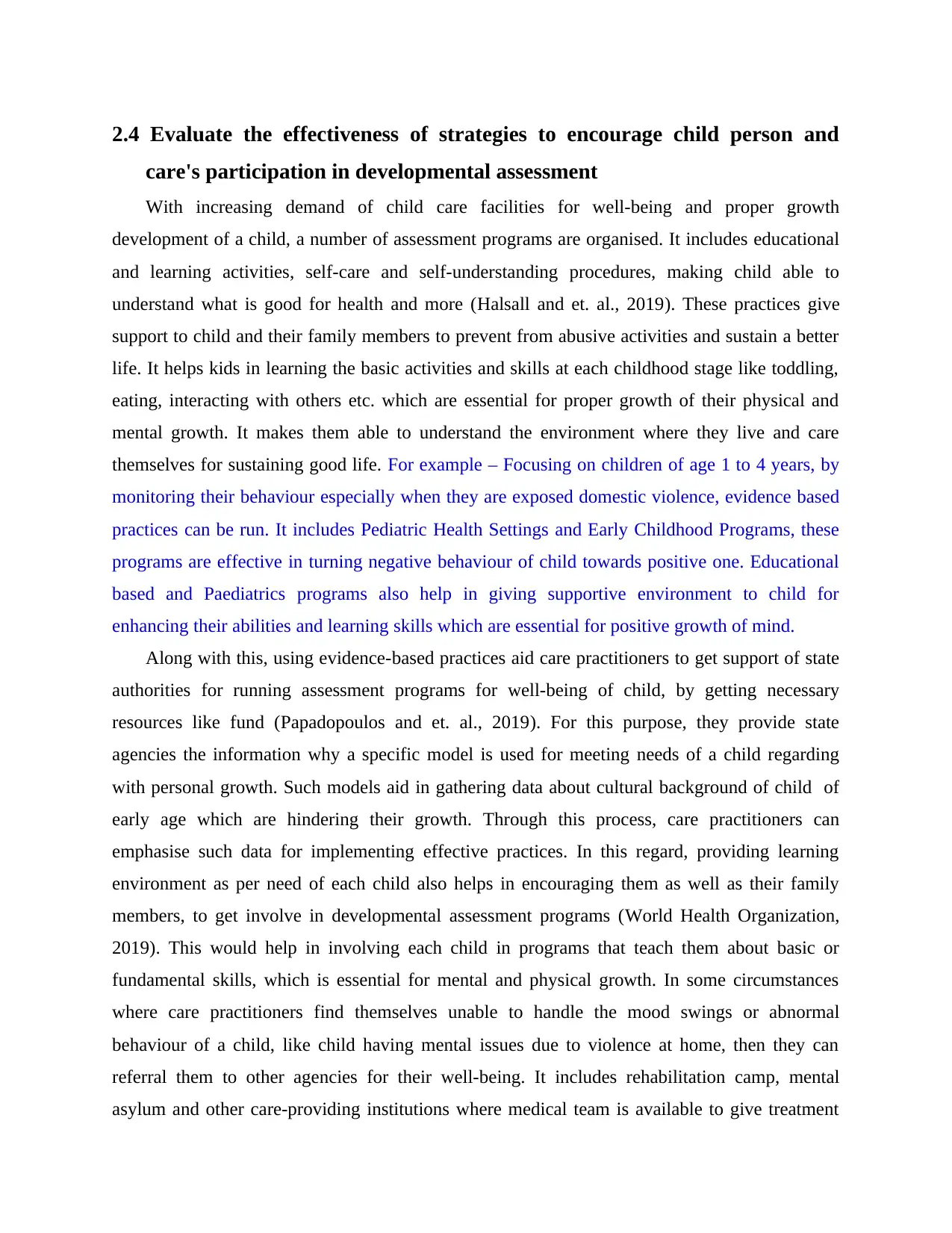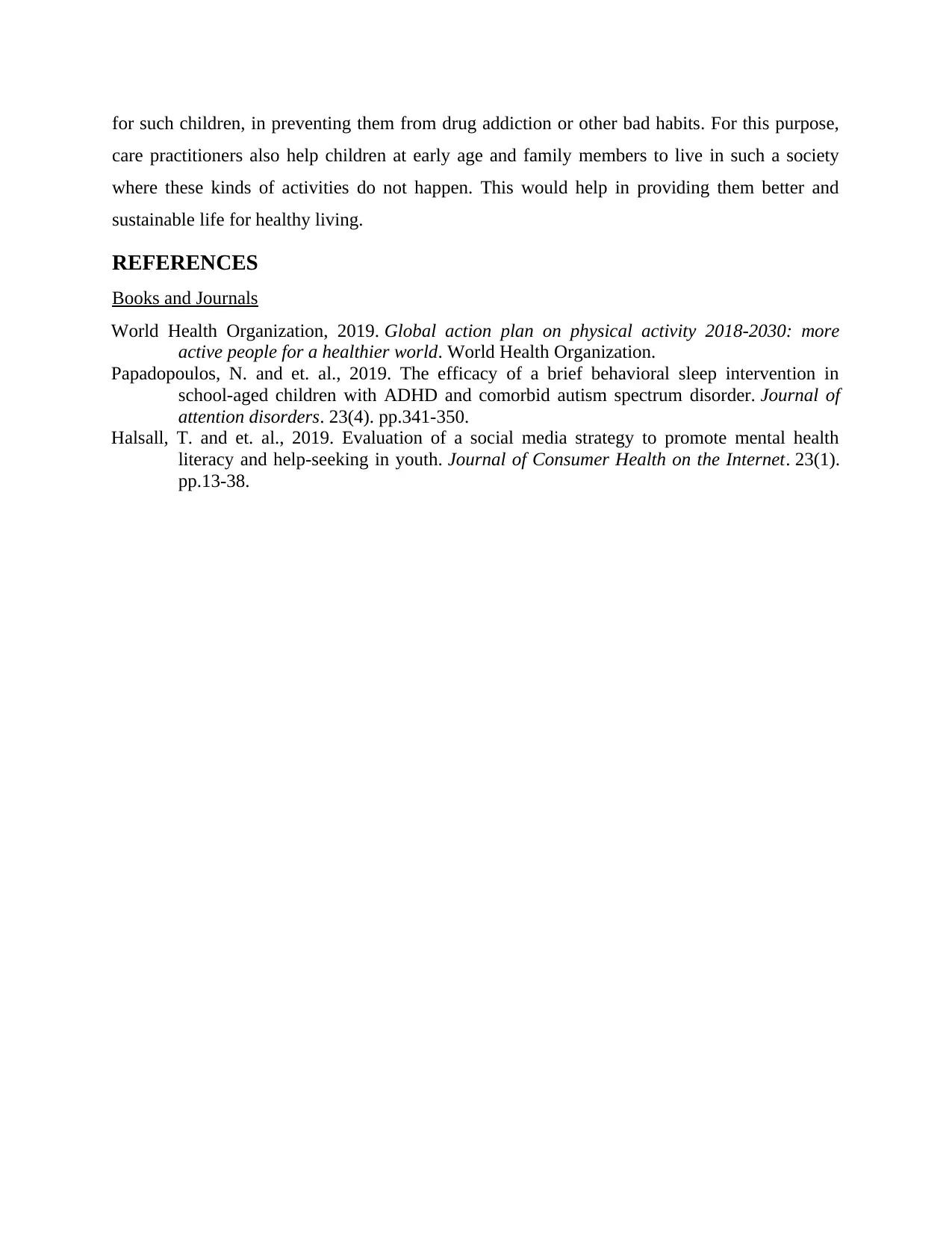Evaluating Strategies for Child Development Assessment: A Report
VerifiedAdded on 2023/01/19
|2
|642
|43
Report
AI Summary
This report evaluates the effectiveness of strategies for child development assessment, emphasizing the importance of early childhood programs and family involvement. It highlights the significance of evidence-based practices and the role of care practitioners in supporting children's mental and physical well-being. The report discusses the use of assessment tools and the need for tailored interventions to address individual needs, including those related to domestic violence and mental health issues. It also covers the importance of providing a supportive environment and the potential need for referrals to specialized care facilities. The report references several sources, including the World Health Organization, to support its findings and recommendations for promoting child well-being.
1 out of 2








![[object Object]](/_next/static/media/star-bottom.7253800d.svg)